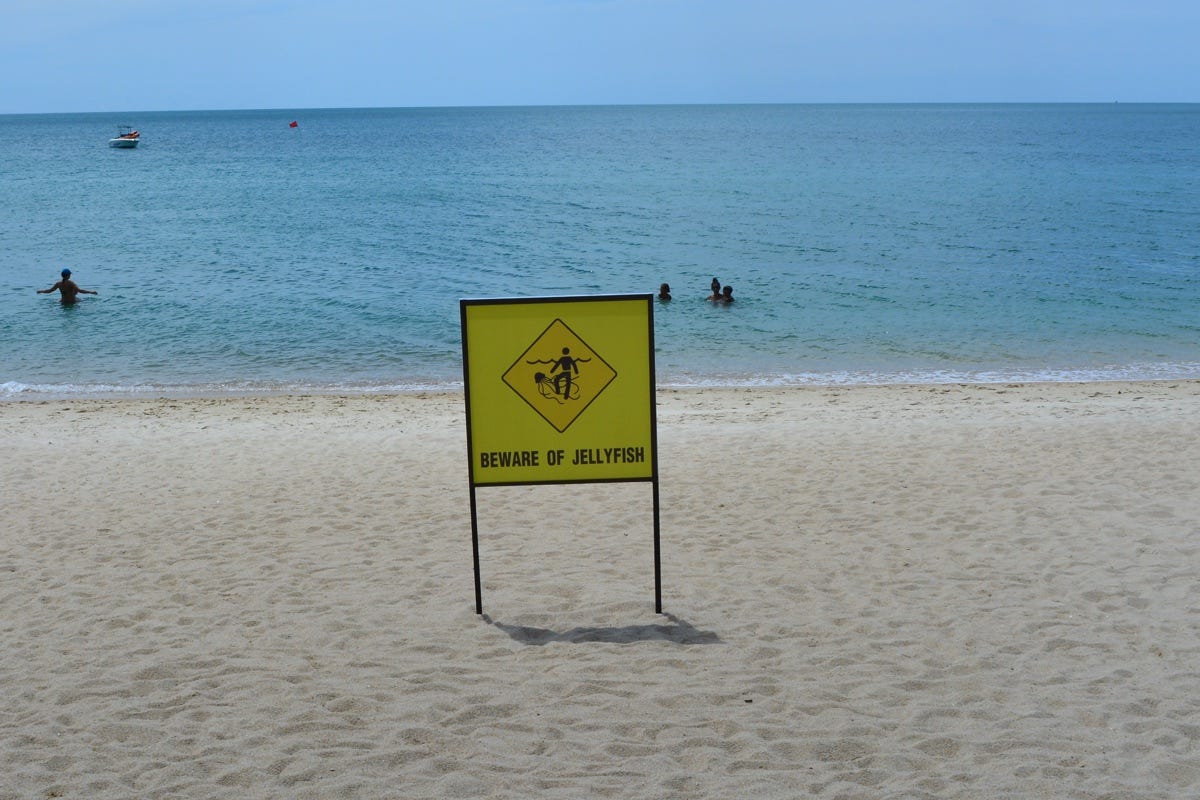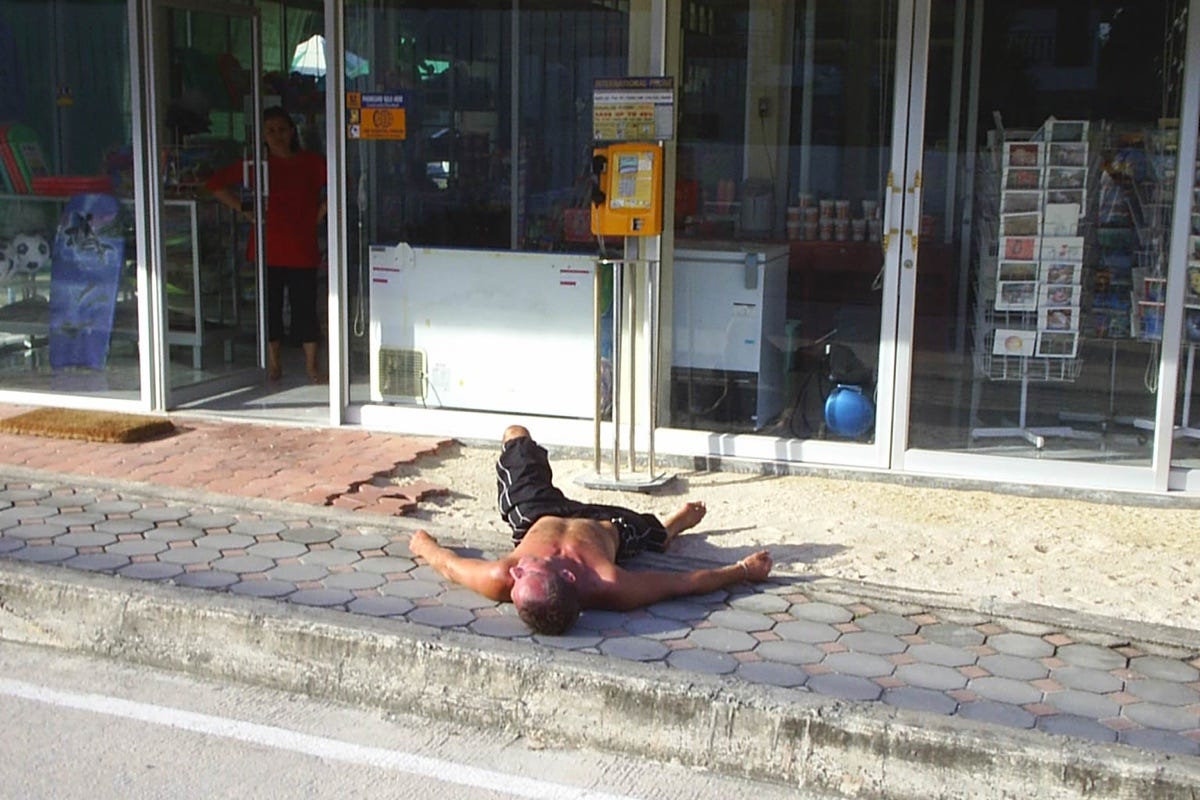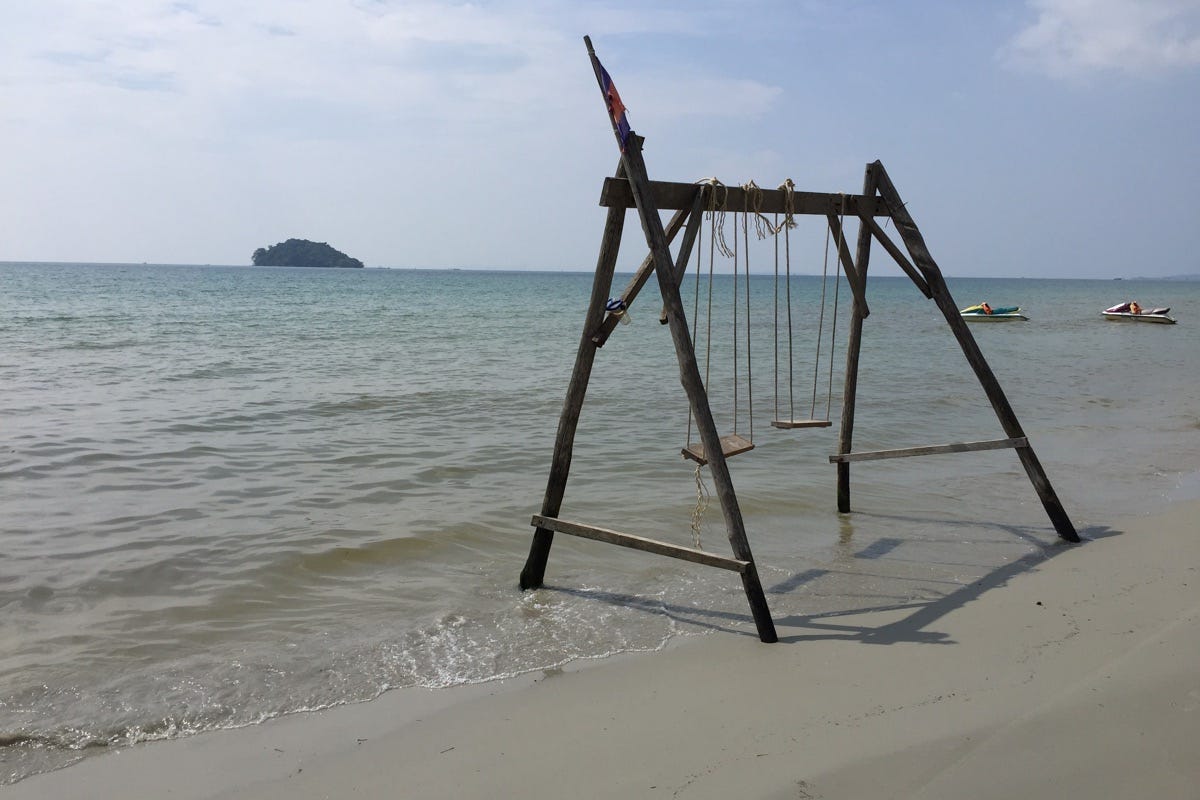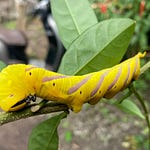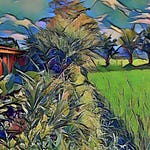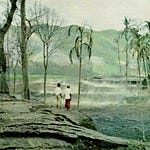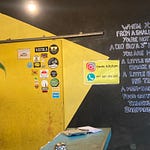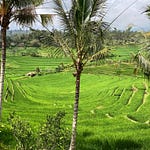We were playing cards on a train from Tangier to Rabat in Morocco when the two local guys sat down. In no time they struck up a conversation with the five of us. Slipping between French and English, they joked and we all laughed.
When we said we were bound for Casablanca after Rabat, they nodded and said something about us being tourists. Oh no, we replied in unison, we’re travellers—not tourists.
Groan.
Exhibit A. Lamai Beach, Ko Samui. Photo: Stuart McDonald.
Well, they said, if you want to see the real Morocco, you should come to our hometown in Asilah. They waxed lyrical about it and told us they’d happily show us around. They seemed ok, we were all, to be fair, very green travellers at the time.
We got off the train at Asilah.
The long con finally manifested itself days later, in a room we didn’t know how to get out of, in a town we knew nothing about. While we got out of the house—and Asilah—unscathed (aside from some dented pride), it was a life lesson.
Paid Couchfish subscribers will know I’ve been writing of Thailand’s far south over the last few days. It is a region that has been wracked with strife, murder and mayhem for decades. Yet, a recurring theme in my writing has been the unwavering hospitality I received in the region.
The deadly yellow phone box strikes again. Lamai Beach, Ko Samui. Photo: Stuart McDonald.
After one of the entries on Yala, a reader emailed me and wrote in part:
“It sounds like you had a wonderful experience in Yala. I wonder if you could mention in a future post that people should be a little wary of very friendly people with good English and too many coincidences in SE Asia. As you well know, most people there are honest and genuine, but there are many scams.”
This is one hundred percent true. While the story up top happened in Morocco, Southeast Asia is far from free of scammers. I’ve touched on some of the region’s most famous scams like the gem scams in Bangkok before, but there are many others. The psychic scam, Filipino card scammers in Phnom Penh and Ho Chi Minh City. The tour guide druggings in Nha Trang. Transport scams, well, everywhere. Fake money exchange in Bali. The list goes on—and on.
Keeping under control is wise. You can tell this photo was taken in Singapore as his wallet is still there. Photo: Stuart McDonald.
Aside from the Morocco experience, I’ve had no shortage of misfortunes in my travels. Each time something amiss happens, it adds a brick to the little paranoid castle in the back of my brain. A pinch of paranoia goes a long way and all that.
Could the family from Yala who befriended me and invited me to stay with them have been axe murderers? Yes, though thankfully they weren’t. They struck me as good people and, well, I’ve never met a teenage axe murderer before. I have met plenty of teenage card scammers and pickpockets though.
Much of it comes down to your judgement and gut feeling. For me, a good benchmark is this:
“Would what is happening feel weird or unsafe if it was happening in my home country?”
If the answer is yes, then I generally walk in the opposite direction. Many though don’t.
A beautiful sunset at an isolated spot. A walk on an unlit jungle trail to get home. Take a friend with you. Perhentian Islands, Malaysia. Photo: Stuart McDonald.
Back when inbound tourism to Southeast Asia was a thing, a week wouldn’t pass without a tale of a foreigner in strife. More often than not, I’d read the story thinking “what on earth were you thinking?!”
The real problem here is of course the scammers, but they often get a big assist from their victims. As I’ve written over and over, when you’re packing for a trip, the first thing you should always pack is your common sense.
A good second step, particularly if you’re hitting somewhere for the first time, is to read the local press. By local press, I don’t mean local press in your mother tongue, but rather local press in the local language. Google Translate is your friend here.
Lombok’s Kuta Beach. Take care come the evening. Photo: Stuart McDonald.
Take Bali as an example. The English press will pick up tales of woe, but often only those involving foreigners. The local language press is a different beast. Local media outlets are flush daily with tales of murder, rape, assault, theft and other mayhem. A quick skim over a single Bali news site delivers a kidnapping, hit and run, murdered baby, two rapes, corruption, and a drug party bust. And that is only yesterday’s headlines! Of these, only the drug party hit the English press. Why? You guessed it—it allegedly involved a couple of foreigners.
It pays dividends to at least be aware of what life is like for everyone else. Take my word for it, there is no clearer way to demarcate a tourism bubble than to read the local press. Though that will only get you so far. As in the West, rape and other violence against women often goes unreported. Even when reported, often little if any, action by the police results. Unlike murder, these crimes are ones that foreigners face frequently—often in areas popular with foreign tourists.
Sihanoukville’s beaches—another notorious one after sunset. Photo: Stuart McDonald.
Authorities often see maimed or dead tourists as being bad for business. Look no further than the recent murder of a foreign tourist in Phuket. The Thai police can be quite fast moving when the tourism cash cow is at risk.
All of this though ignores another entire element—not the dodgy locals, rather the dodgy foreigners. Who hasn’t met a scamming or thieving foreign traveller during their journey? I’ve written about one of my most memorable cases here, but there have been plenty of others. People prolonging their trips by stealing off other travellers. Go jump in the sea every one of you.
It is a common refrain to see Southeast Asia referred to as a very safe region to travel in. I agree with this, but, using your common sense, and trusting your gut, helps. Statistically, the easiest way to end up in a hospital in Southeast Asia is to ride a motorbike without a helmet. The fault here lies with one person only—the rider.
Helmets help. On the way to Dien Bien Phu, Vietnam. Photo: Stuart McDonald.
Entered into the “do as I say, not as I do” file, most of my misadventures have resulted from my own recklessness or idiocy. Be it robberies, attempted murder or being bottled, there is plenty of blame to go around, and much of it is on me. Despite this, the paranoia castle in the back of my mind is more Koh Ker than Angkor Wat. It is there in the woods, but it is not too large. It informs my decision making but doesn’t drive it.
Despite the mayhem, the vast majority of travellers to the region will have no more a problem than a funny tummy. It does though make sense to pay attention to your surroundings, to trust your gut and to not think twice about walking away.
Almost all the local people you’re likely to encounter in your Southeast Asian travels will be legit. Just don’t feel ridiculous in asking yourself would this feel normal and safe in your home country?
If it doesn’t, walk away.
Couchfish is 100 percent independent and reader-supported. If you’d like to show your support, become a paying subscriber today for just US$7 per month, or simply share this story with a friend. Thank you!


